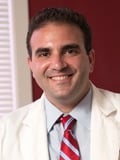When couples are having trouble conceiving, the first instinct for many is to look to the woman for a cause. “The reality is that 40 to 50 percent of all infertility can be contributed to the male partner, making it important to complete a comprehensive semen analysis in addition to testing the female partner.” explains Isaac Sasson, M.D., Ph.D., of the Chesterbrook, PA office. Luckily, advances in fertility treatment over the past two decades have made male factor infertility one of the most treatable forms of infertility.
Simple Test to Determine Male Factor Infertility
A simple semen analysis can provide insight to the overall quality of a male’s sperm. The results can identify infertility and point physicians in the direction of the cause. At Shady Grove Fertility, a specially trained andrologist, using the most recent World Health Organization (WHO) standards for semen analysis, reviews each sample paying close attention to four parameters:
- Volume: “Semen is made up of sperm, amino acids, sugars,enzymes, and several other secretions made by the male reproductive system.” says Dr Sasson. Ideally there should be at least 1.5 milliliter. If the volume of ejaculate is low, the sample may be lacking in these important components that are critical in reproduction. It may also signal a blockage in the ejaculatory system that can obstruction semen transport.
- Count: Concentration – commonly referred to as “sperm count” – tells physicians the number of sperm within the semen. A healthy concentration will contain more than 20 million sperm per milliliter. A low sperm count can signal a problem with sperm production. This can arise from a problem in the testicle, the hormones that regulate sperm production, an underlying genetic disorder, or exposure to medication or environmental factors.
- Motility: Motility refers to the sperm’s ability to move. In a healthy sperm sample, at least 40 percent of sperm are moving. Should the motility fall below this threshold, the ability for the sperm to reach the female reproductive tract and find the egg can be compromised.
- Morphology: Sperm morphology pertains to the percentage of sperm that are of a normal size and shape. Sperm shape reflects DNA content within the sperm. Abnormally shaped sperm are unable to fertilize an egg or produce a viable embryo. Ideally, more than 4% of sperm should be normal in shape.
Click here to schedule a Semen Analysis>
Treating Male Factor Infertility
Once male factor infertility is identified, depending on the severity, there are several treatment options available to overcome male factor infertility.
- Intrauterine Insemination (IUI): This low tech treatment option is used for mild forms of male factor infertility or when using donor sperm. This affordable option can be performed in any of our full service offices and does not require sedation or anesthesia. Prior to the procedure, an andrologist will wash and concentrate the semen sample keeping only the strongest swimming sperm, which will then be placed directly into the uterus. The procedure is painless and takes less than 5 minutes to perform. Men can collect at home and women can return their daily routine after the procedure.
- In Vitro Fertilization with Intracytoplasmic Sperm Injection (ICSI): “When lower tech options are not successful or the male factor is severe the next option to consider is IVF with ICSI which allows a single sperm to be injected directly into the female partner’s eggs inside the embryology laboratory.” explains Dr. Sasson. Depending on the age of the female patient this option can more than double the changes of success seen with IUI resulting in up to a 53 percent delivery rate.
In some rare cases, there will be no sperm in the ejaculate. There are several options to consider when that is the case:
- Surgical Sperm Retrieval: These are procedure include PESA, TESE, or testicular biopsy. These procedures are done under local or general anesthesia, are not painful, and have a quick recovery. During a PESA/ TESE, a needle is inserted into the testicle and fluid is withdrawn. The fluid is then inspected under a microscope and healthy sperm are extracted from it and used to in the embryology lab to fertilize the retrieved eggs. In rare cases, a testicular biopsy can be performed in which a small sample of tissue is extracted from the testes. The tissue is then inspected under a microscope and any healthy sperm are isolated and used during IVF with ICSI. The surgically retrieved sperm can be frozen and used in subsequent treatment cycles if needed. These options have proven very successful at helping men with a severe male factor build their family.
Donor Sperm: Donor sperm is also the only option for many single women, women in same sex relationship, and women whose male partner is experiencing severe male factor infertility with no available sperm. Use of donor sperm it is more common that you might have thought. In 2013, at Shady Grove Fertility, approximately 20 percent of all IUI treatment cycles used donor sperm.
“For patients seeking an anonymous donation there are several national certified sperm banks we recommend.” says Dr. Sasson. When considering donor sperm, the educated consumer should be wary that not all sperm banks are equal. It is recommended that the following screening and protocols have been performed by the sperm bank:
- Testing for infectious diseases, such as HIV and Hepatitis, prior to collection and again after a 6 month quarantine of the semen.
- Genetic disease for conditions such as cystic fibrosis and sickle cell anemia.
- Sperm quality determined by a semen analysis.
At Shady Grove Fertility, we recommend the following certified sperm banks:
When using the sperm of a known donor FDA regulations call for the same screening and quarantine of the semen prior to use.








